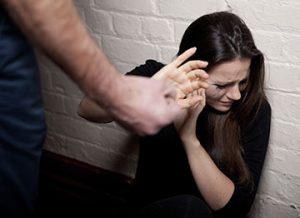By Dallas R. Mosier and Jessica A. Gladfelter
- In December 2012, Kelvin Adams shot his ex-girlfriend, Denise Miller, as she left an afternoon church service. He then turned the gun on himself.
- In 2011, Catrena Jones — who lost custody of her daughter in 2008 — walked into a church and abducted her daughter while the daughter was away from her legal guardian.
- As Nina Castro waited for her son in a church parking lot, her estranged husband drove up, shot Castro, and sped off. The husband then fled to his home, where he later committed suicide.
These three examples demonstrate an unfortunate truth: What happens at home doesn’t always stay at home. Broken relationships, custody battles, divorces and separations — all types of domestic disputes — can make their way to your house of worship and play out a final act there … sometimes with grave consequences.
As the director of operations for a large church told us, “It’s one of the potential threats that I worry about most.”
————————————————————————————————————————
RELATED RESOURCES
Church sued for abuse that occurred at VBS
Expert: Church waking up to abuse
The unthinkable: Responding to sexual abuse allegations
————————————————————————————————————————
Get proactive
So, what can you do — and what should you do — to protect your congregation from the harm that accompanies these types of disputes?
 Be aware of potentially hostile domestic disputes. Let your congregation know that the church leadership team needs to be made aware when domestic conflicts reach the point where a family member feels there’s a chance for violence. Create an easy way for congregants to discuss this personal subject with your staff — discreetly, confidentially and understandingly.
Be aware of potentially hostile domestic disputes. Let your congregation know that the church leadership team needs to be made aware when domestic conflicts reach the point where a family member feels there’s a chance for violence. Create an easy way for congregants to discuss this personal subject with your staff — discreetly, confidentially and understandingly.
Protect the children. This is even more important if you provide children’s ministries where the child is away from their parent or guardian. If a parent doesn’t have custody, if custody is in contention, or if that person has been ordered to stay away from his or her family, the children’s program is a predictable place and time at which the parent might find his or her son or daughter.
Focus on court orders. They change everything. Court orders — sometimes called restraining orders — are the means by which a judge tells an individual he or she must stay away from another person. If a congregant in your house of worship has a restraining order protecting them from another person:
Get a copy of the order. If there’s a problem at your house of worship involving that couple, the police won’t want to hear about a restraining order — they’ll want to see it. “We try to obtain copies of any restraining order that involves our congregation,” says the security director of a large church in Virginia.
Share the restraining order — discreetly — with those who have official responsibilities for church security. “We brief our security team so they’ll know there’s the potential for a problem,” the security director continued.
Check the details. Confirm that the restraining order is valid. Check the dates, the terms of the restraining order, and the county where it was obtained.
Houses of worship have a responsibility to protect their congregation spiritually, but also physically. Knowing which domestic disputes might threaten your congregation is one concrete step you can take to keep your congregation safe.
Dallas R. Mosier is a rising junior at Saint Francis University in Loretto, PA. She is pursuing a BS in chemistry, as well as a BS in criminal justice. She currently serves as an intern for a federal agency in the DC area.
Jessica A. Gladfelter is a rising senior at Roanoke College in Salem, VA. She has done research in psychology for three years and is currently pursuing a BS in psychology. She currently serves as an intern for a federal agency in the Washington, DC area.


